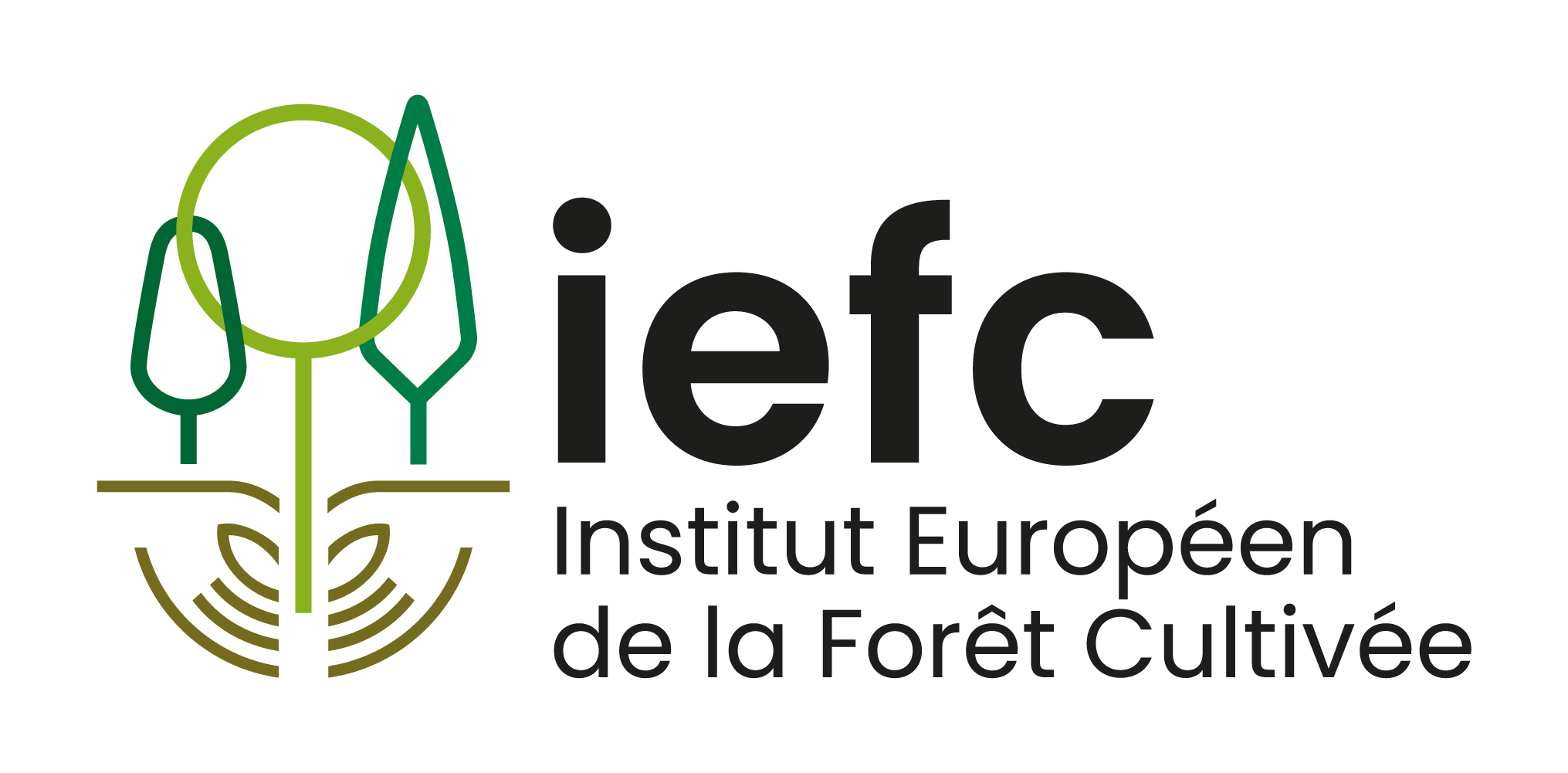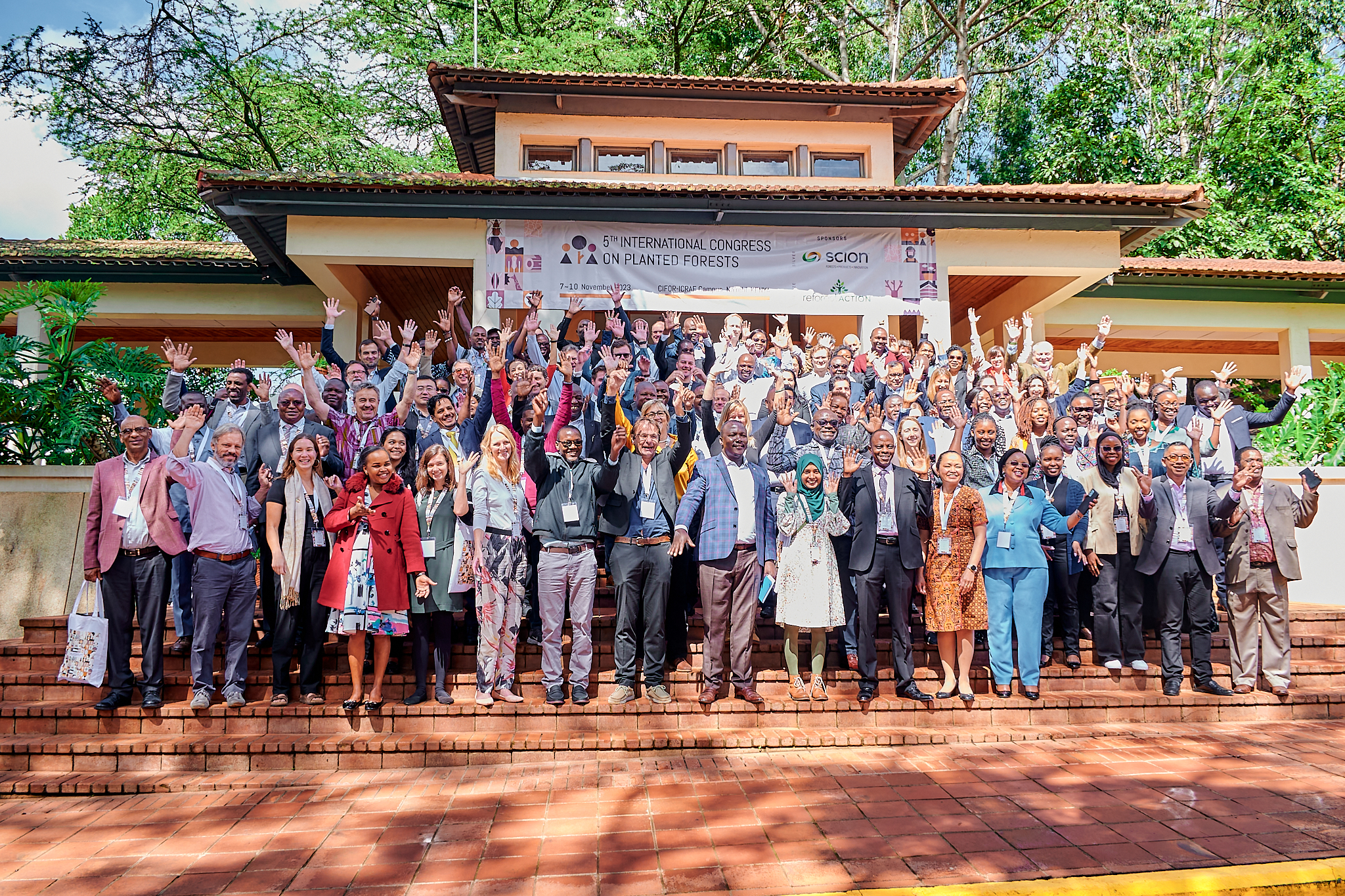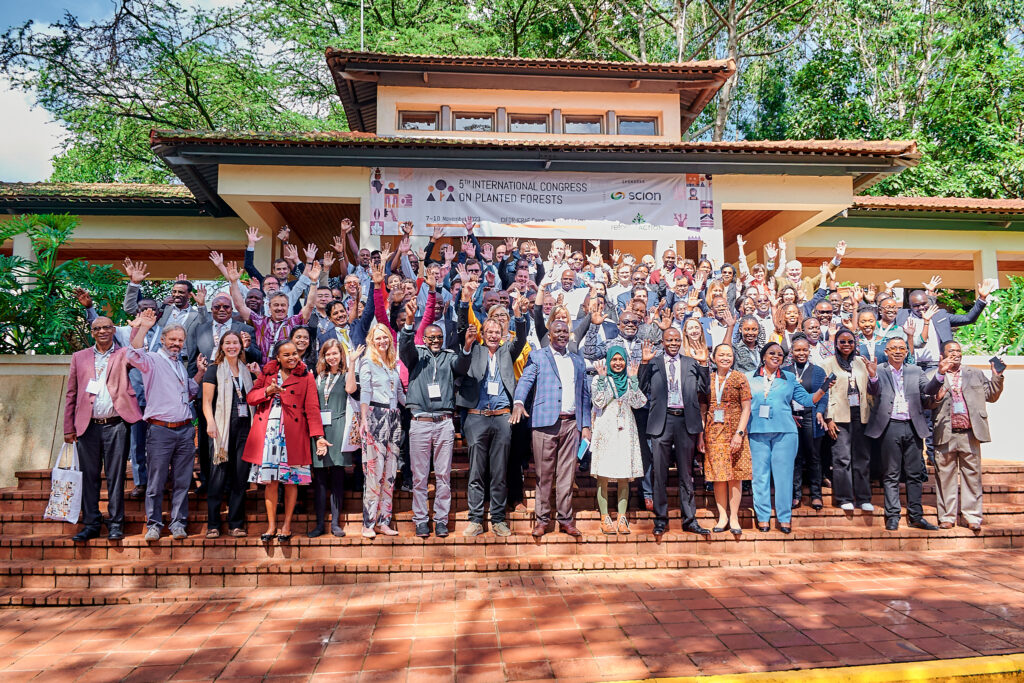
A continent with ambitious afforestation plans for the bio-economy and ecosystem restoration.
Kenya was the perfect country to host the 5th edition of ICPF as the population of Africa is expected to increase from 1,2 billion to 2,5 billion by 2050 with associated needs for construction and energy. This has led Kenya to afforest millions of ha to move from 6% to 10 % of forest land by 2030, requiring structural change in legislation, land accessibility, seed orchards and increased wood processing capacity. With a world population projected to reach 9.8 billion in 2050 – an increase of nearly 30 percent from today’s 7.6 billion – the needs for food, fuel, fiber and other bio-based products and services will rise sharply worldwide. Demand for forest-based biomass will increase, driven by construction and packaging, and wood fuel will remain the main energy source for many households in emerging economies.
At the same time, climate change, ecosystem degradation, and their impacts call for deep changes in our global production and consumption patterns, with good examples taken from Sahara green belt and mangrove restoration. All over the world societies are engaging in the decarbonization of their economies and the restoration of their environment – with a prominent role for nature-based solutions.
Planted forests are an essential nature-based solution to meet growing needs in wood products, restore forest ecosystems, and mitigate climate change.
Within the topic of planted forests, 130 participants from 35 countries came together in Nairobi for the 5th ICPF, discussing global challenges and opportunities for planted forests. The ICPF is a global forum focused on planted forests under the auspices of the IUFRO task force on resilient planted forests serving society and the bioeconomy, an inclusive expert group led by IEFC bringing together leading global scientists, private sector organizations, NGOs and IGOs. The 5th ICPF was the first to be held in Africa and was co-organized by the Institut Européen de la Forêt Cultivée (IEFC), the Food and Agriculture Organization of the United Nations (FAO), the Center for International Forestry Research and World Agroforestry (CIFOR-ICRAF), the International Union of Forest Research Organizations (IUFRO), the TreeDivNet network, the Kenya Forestry Research Institute (KEFRI), the Kenya Forest Service (KFS), and the Ministry of Environment, Climate Change and Forestry of Kenya.
The 5th ICPF emphasized the global significance of planted forests. The presentations – that can be found on the IEFC website – field trip and discussions covered various topics, including business models, governance, and innovative practices for sustainable forest management.
Key takeaway messages include the importance of knowledge exchange for a large number of topics:
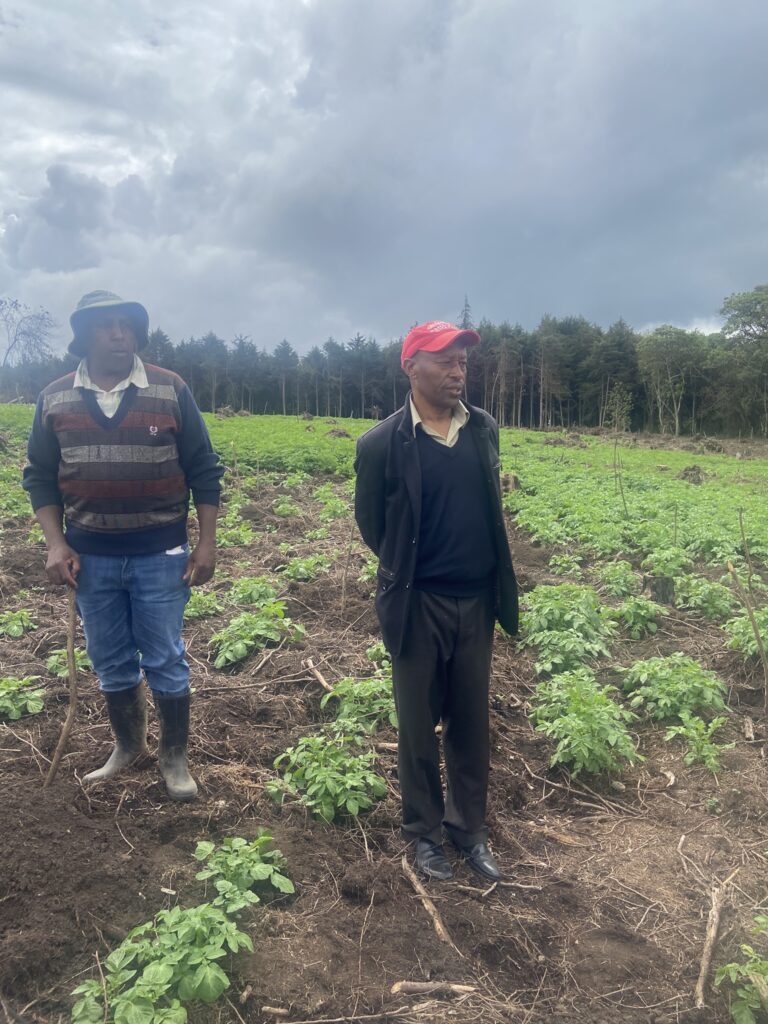
- Site matching to genetic resources, making sure that the tree you will plant will be adapted to the future climate, will cope with pest and disease, with a specific focus on the genetic resources in Africa, including exotic species, and the forest health monitoring programme led by FISNA
- Seed selection, seed treatments, plantations techniques have been discussed to see how to maximize the success of plantations.
- Silvicultural practices adapted to product and context : pruning is required for many species, but can be combined with pastoralism as illustrated during the filed tour in Cupressus lusitanica stands and seedlings can me associated with potatoes plantations at the early stage. Many participants discussed the challenges and potential benefit of mixed plantations.
- The perception of exotic species in Africa where wood scarcity is an issue is very different from the lack of social acceptance of plantations for bio-fuel found in New-Zealand.
- Fertilization has been questioned because it shows complex responses under dry conditions.
- Ecosystem services are assessed in many planted forests, but C sequestration is the one requiring more effort to get accurate forecasts for restoration schemes. In addition, fine tuning is ongoing to compare C storage in restoration programmes, using many tools from simple allometric equations to universal models or lifecycle assessment.
- One of the drivers for wood plantation in Africa is the demand for construction wood and energy, the potential of housing made of wood and the development of bio-char from fast growing species was covered in many talks.
- Political needs and solution have been addressed in many talks, from involvement of communities small growers, cooperatives, and public land use. The importance of political decisions to secure long term land use, carbon markets, infrastructure, and private owner engagement in planted forests at the same time preventing illegal logging in reserves and securing carbon credit schemes.

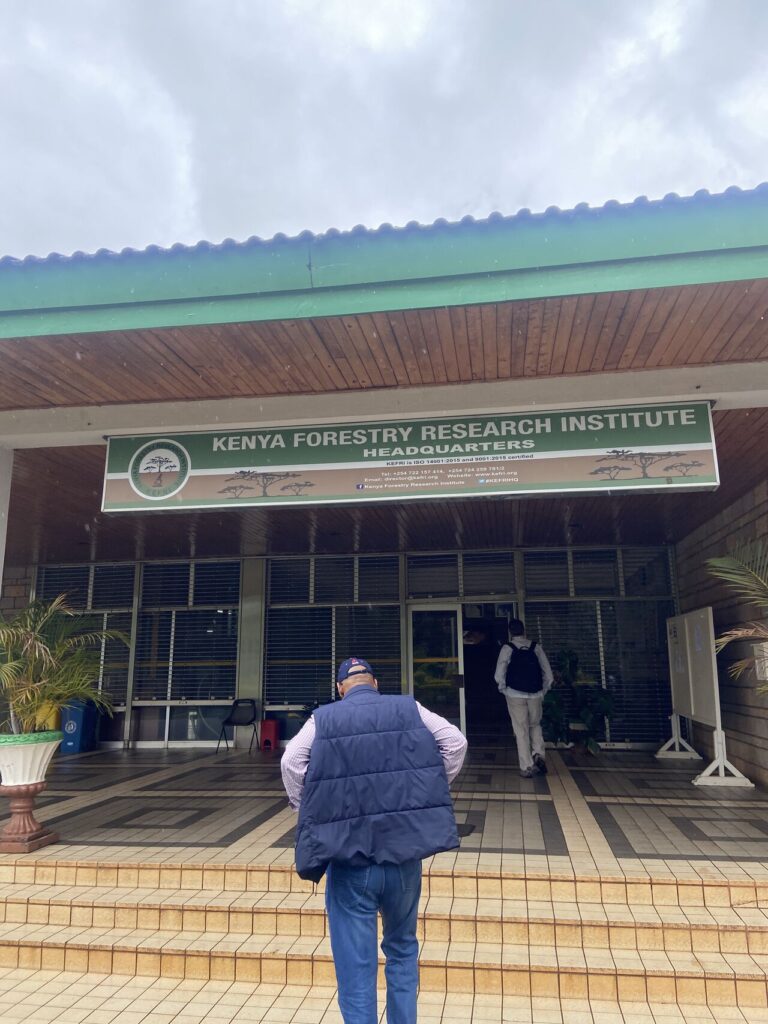

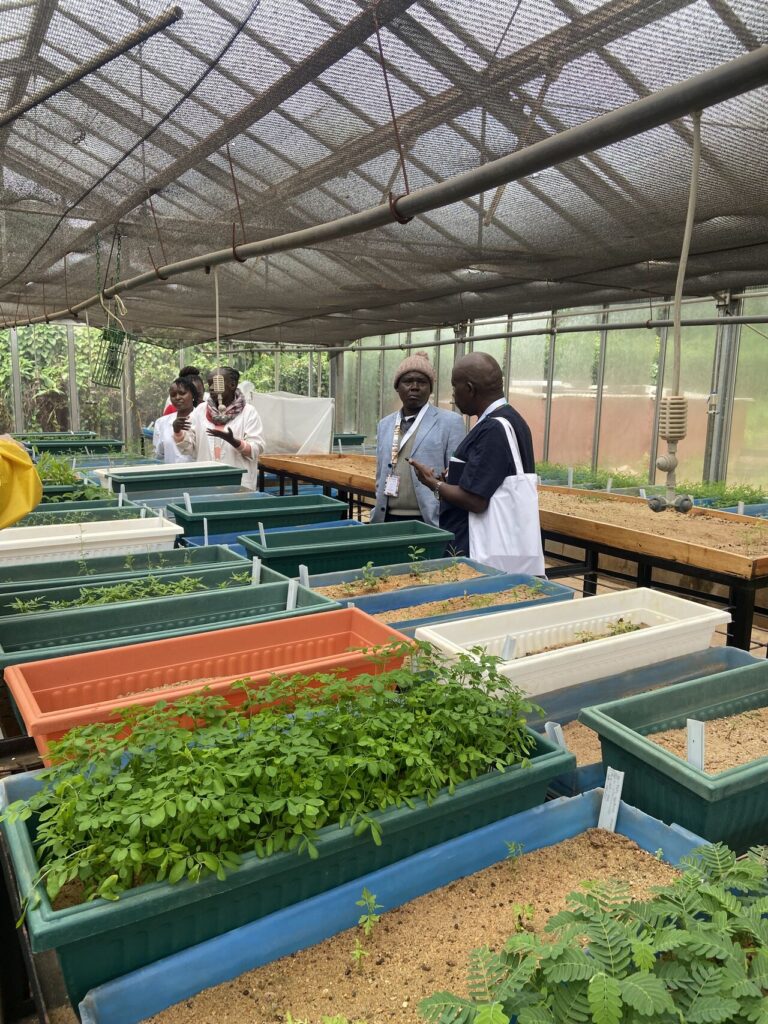
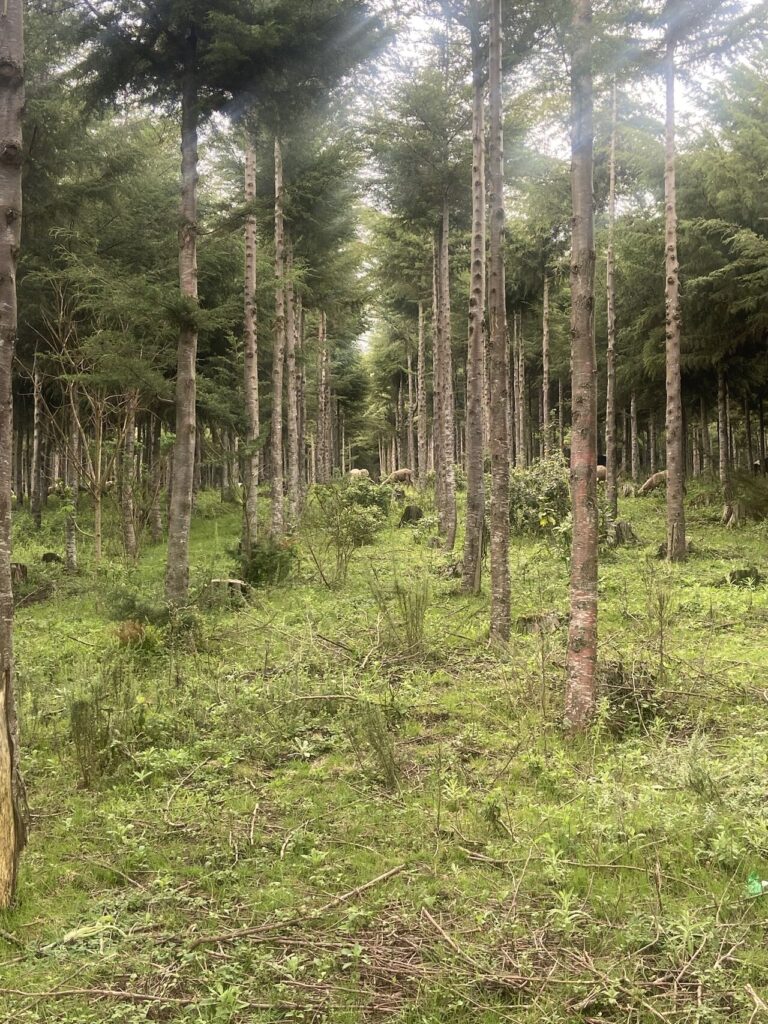
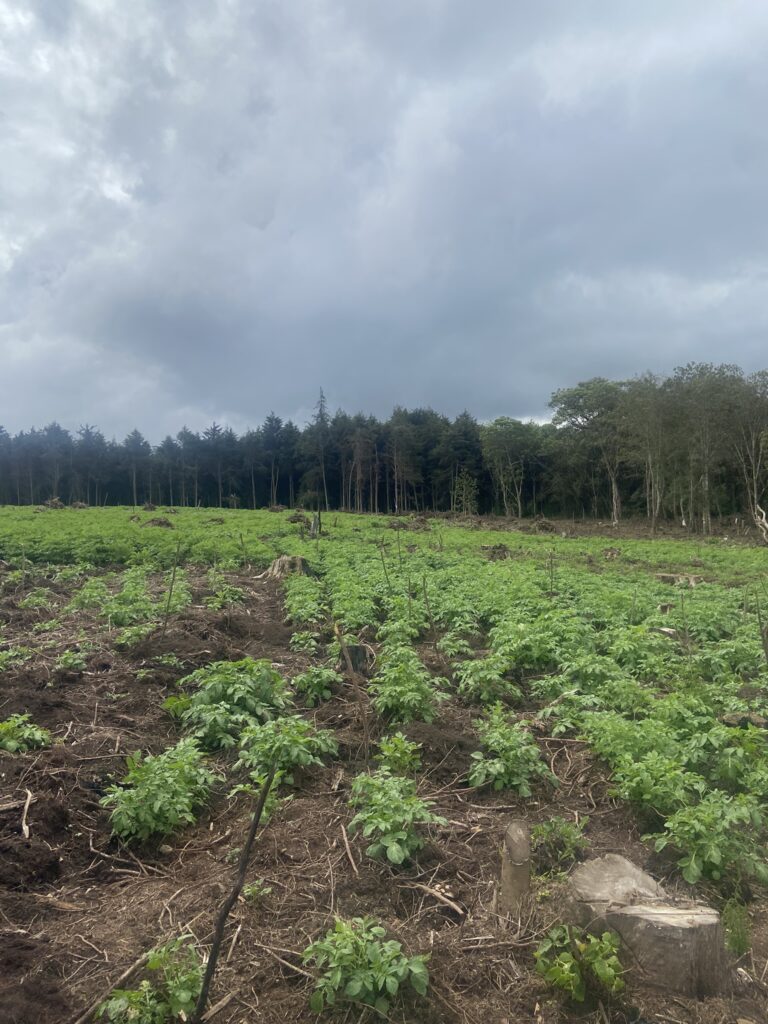
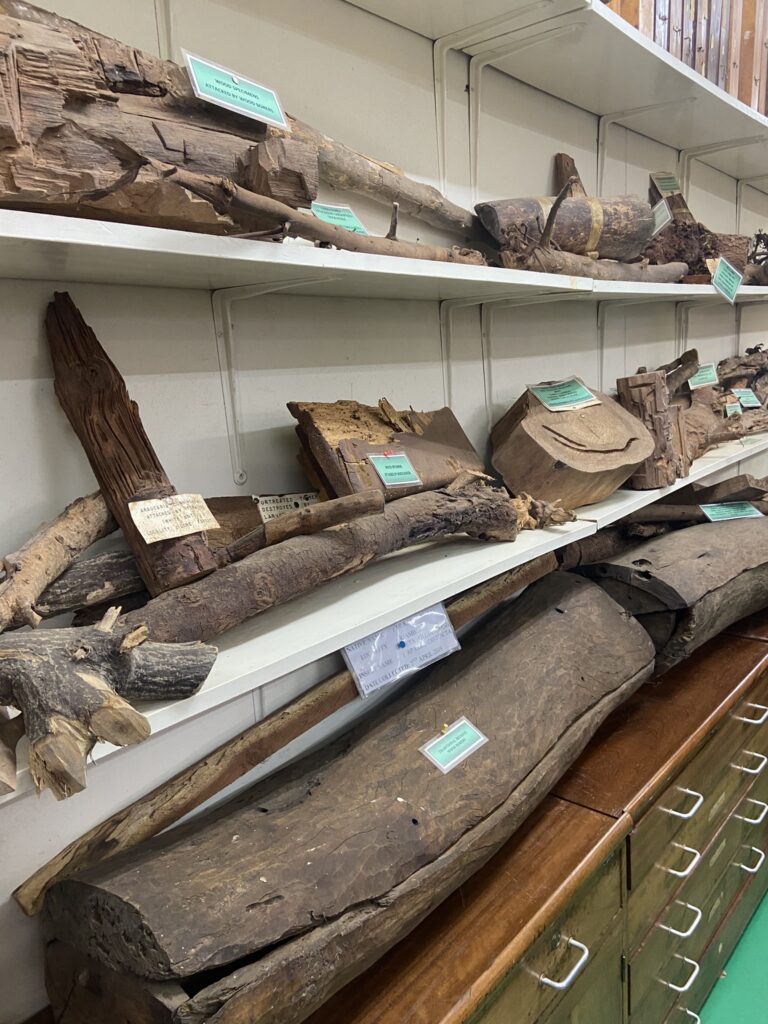
The livestreamed concluding session summarized the congress outcomes and is available on Youtube. During this session, FAO’s Unasylva #254 “Towards more resilient and diverse planted forests’’ was launched. In the closing, high-level speeches from the Cabinet Secretary of the Ministry of Environment and Climate Change of Kenya, the CEO of CIFOR-ICRAF and the FAO Kenya representative highlighted the commitment to support initiatives like Kenya’s 15 billion tree campaign and the UN Decade of Ecosystem Restoration.
The congress was enriched by two FAO-led events. During the pre-event on ‘’Unlocking finance for sustainable and inclusive wood value chains’’, presentations and discussions covered three key segments of the wood value chain: (1) Developing end-markets for sustainable wood – the market for timber in the construction sector; (2) Processing wood for value addition, efficiency, and as an incentive to expand forest areas; and (3) Producing wood in a sustainable, responsible and inclusive way, with a special focus on the role of smallholder forest and farm producers. The event was attended by around 80 participants and was co-organized by FAO, ICRAF, the Swedish Embassy, Gatsby Africa, KFS and KEFRI.
In addition, the Forest Invasive Species Network for Africa (FISNA), held a side event titled “Enhancing forest resilience to invasive species and climate change impacts – tools for early warning”, bringing together 15 focal points and members from 12 countries in the region to discuss the health of forests in sub-Saharan Africa and share knowledge on the challenges and benefits associated with utilizing surveillance systems for forest health.
This fruitful event led to constructive exchanges and generated many project opportunities, in a positive atmosphere. A second chance for participants who missed this Kenya opportunity will be to attend to IUFRO world congress 2029!
Watch the official event video of the ICPF 2023
Further information:
ICPF website: http://icpf2023.plantedforests.org
ICPF concluding session recording: https://www.youtube.com/watch?v=KkC6NvJIVd8&ab_channel=CIFOR-ICRAF
Unasylva #254 ‘’Towards more diverse and resilient planted forests’’: https://www.fao.org/documents/card/en?details=cc8584en
FISNA: https://www.fao.org/forestry/fisna/en/
Unlocking finance for sustainable and inclusive wood value chains: https://www.fao.org/forest-farm-facility/news-and-events/news-detail/en/c/1661552/
Christophe Orazio, IEFC
